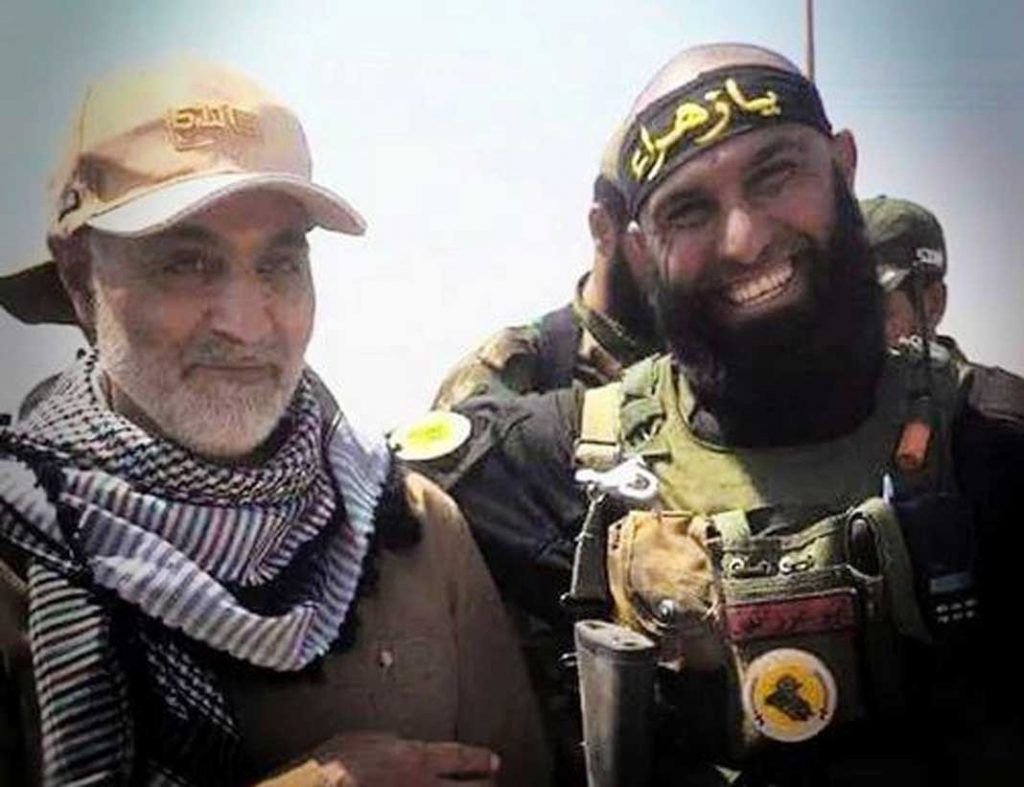June 6, 2017
By Ahmad Rafat
The Battle of Mosul is a joint military offensive launched in October 2016 by Iraqi government forces, Iranian-backed Shia militia, and the Peshmerga military forces of Iraqi Kurdistan. Its aim is to dislodge the Islamic State of Iraq and Levant (ISIL) from the northern Iraqi city of Mosul.
ISIL is led by Abu Bakr al-Baghdadi, an Iraqi national who was arrested by U.S. forces in February 2004 and held at the Abu Ghraib and Camp Bucca detention centers under his true name, Ibrahim Awad Ibrahim al-Badry. He was released in December 2004.
According to some reports, ISIL has, in recent months, lost 90 percent of the areas under its control in Mosul. Many Sunni residents of Mosul, however, have been fleeing the city at the same time as ISIL. They fear that the Shia liberating forces: specifically, the Iranian-backed People’s Mobilization Forces (RMF), reportedly established by Qasem Soleimani, the commander of the Islamic Revolutionary Guards Corps’s Qods Force (IRGC-QF).

Residents of Mosul have experienced the same human-rights abuses at the hands of the liberating Shia militia as they did under their Sunni ISIL occupiers. Revelations of torture, rape and killings by the Shia militias have come to light after the German magazine Der Spiegel published a report by the Iraqi photojournalist Ali Arkady, who had been embedded with one of the units of the Emergency Response Division (ERD) of Iraq’s Interior Ministry fighting in Mosul.
In an interview with the CNN’s Christiane Amanpour, Arkady said he was allowed and even encouraged to film interrogations and torture. Shia militias have reportedly used every opportunity to intimidate and terrorize the Sunni population of Mosul.
The video of a young Sunni ISIL fighter being set on fire by a notorious RMF member — Abu Azrael, also known as ‘angel of death’ — has gone viral on social media. Abu Azrael has reportedly tortured and set fire to dozens of ISIL fighters.
Abu Azrael is not the only militia member to have committed war crimes. Om Hanadi, the 39-year-old female commander of a 70-strong RMF battalion, has been filmed on camera demanding: “Boil ISIL members alive in hot water.” The Iranian media have celebrated Hanadi’s inhuman actions.
Human rights organizations have widely reported on war crimes committed by the Iraqi government and RMF forces in territories liberated from ISIL control. The Islamic Republic media, however, has not reported on these atrocities.
According to a report by Amnesty International, Iraqi men wearing federal police uniforms tortured and killed up to six residents of Qyarh, in southern Mosul, who had been arrested on suspicion of links with ISIL. The same report states that members of the RMF, including Abu Azrael, were setting fire to the beards of men who had been freed from ISIL jails.
Iranian-backed RMF forces have reportedly been involved in the systematic humiliation, public flogging and torture of young men whose only crime is their Sunni faith.
International Human Rights Observer (IHRO) has also reported crimes committed by Iraqi Shia militia in predominantly Sunni regions, including the burning of homes of suspected ISIL collaborators. RMF soldiers are guilty of the same atrocities that have been committed by ISIL fighters against the Shia, Christian and Yazidi population.
Fatemeh, a 15-year-girl, says ISIL and RMF killed her father and brother, respectively. She sells facial tissues in the streets of Sulaymaniyah, in Iraqi Kurdistan, to support herself and her younger brother. “Cancer killed my mother,” says Fatemeh. “My father and brother were victims of violence committed in the name of religion and peace.”
Fatemeh and others like her in Iraqi Kurdistan are the forgotten victims of a war that may not be ending anytime soon. The Sunni jihadists of ISIL will most likely be driven out of Mosul in the coming weeks. Yet barring a miracle, they will be replaced with an equally brutal Shia regime that is likely to cast a dark shadow over Iraq.

